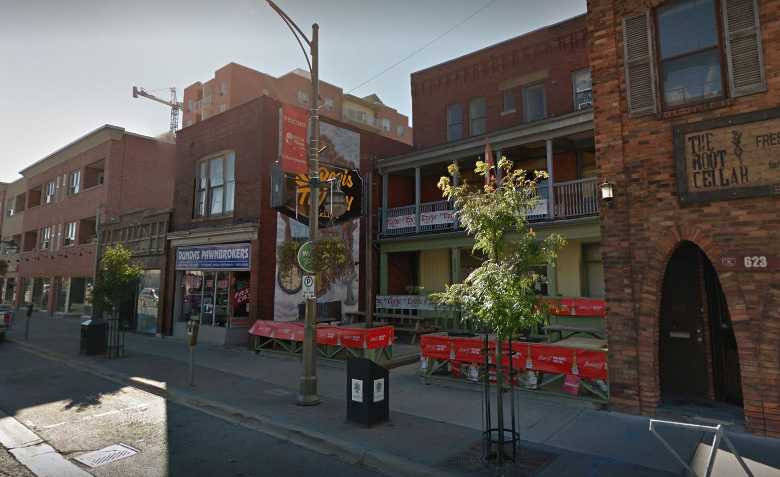The city is officially plugged in to amplified music and dancing on patios, after council voted unanimously in favour of a pair of motions on Tuesday night.

One of the motions scrapped a zoning by-law prohibiting amplified music and dancing all across the city. The other amended a noise bylaw, allowing business owners to apply for temporary, renewable noise permits, so long as music doesn’t pass 70 decibels, and isn’t played past midnight.
READ MORE: City politicians endorse amplified music, dancing on all outdoor patios in London
Counc. Jesse Helmer was pleased to see support across the board for two changes he’d been pushing for, and pointed out that 70 decibles isn’t all that loud.
“I would guess it’s pretty much at the volume I’m talking at right now,” said Helmer, adding that context and landscape are also important considerations.
“I was actually at the patio at The Ceeps and Barneys… they’ve got this 1993 pre-existing use. I was standing on the patio, and the cars on the road are louder than the music on the patio.”
When the bylaw prohibiting amplified music and dancing on downtown patios was passed more than two decades ago, it came with an exemption for patios that had already been built — like the one at Barney’s.
- B.C. to ban drug use in all public places in major overhaul of decriminalization
- Posters promoting ‘Steal From Loblaws Day’ are circulating. How did we get here?
- 3 women diagnosed with HIV after ‘vampire facials’ at unlicensed U.S. spa
- Canadian food banks are on the brink: ‘This is not a sustainable situation’
READ MORE: London councillors delay changes to noise bylaw enforcement for amplified concert events
A cut to that bylaw, and a change that allows business owners to apply for permits both stem from staff reports that received unanimous support at their respective committees last week, despite some push back from residents worried about being able to sleep in their downtown homes.
“If we look at what the ambient level of noise is — the noise that exists already without the patios — and we try to match it in so it’s really not all that different for people, I think with the limit at midnight where you say 70 decibels at the point of reception, that’s going to work really well for a lot of people,” said Helmer.
“I think a lot of people reserve their judgment until they see how it actually works, but I think it’s going to strike a really good balance.”







Comments